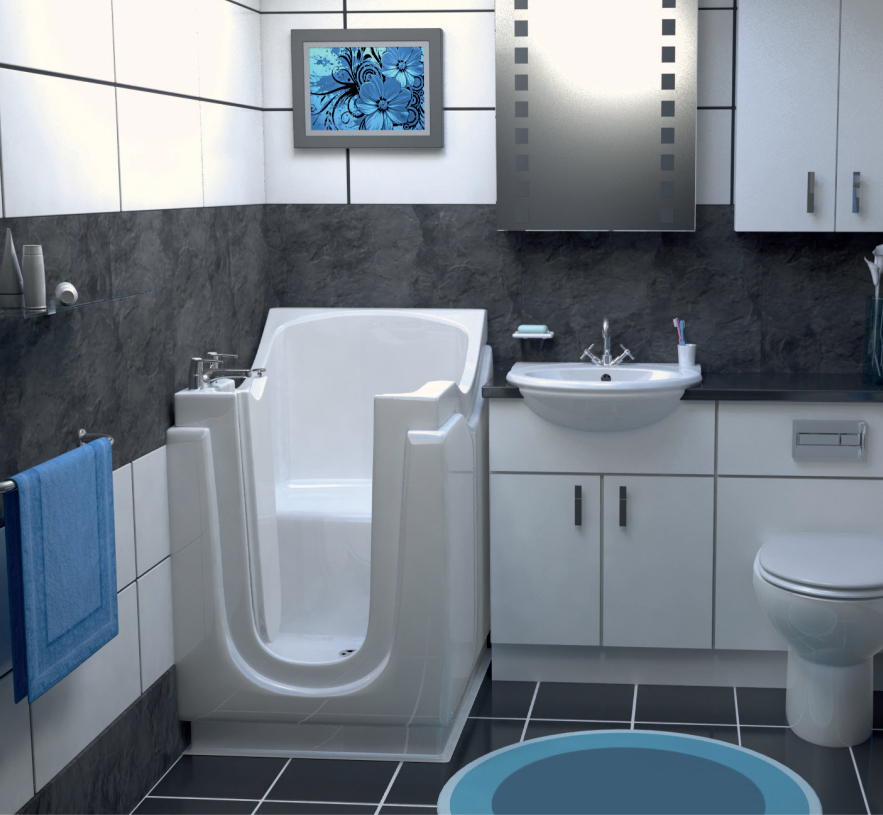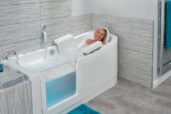If you are finding it harder to manage the tasks of day-to-day living at home, it may be time to think about the ways you can receive more support. This could mean more assistance in your own home, through aids and adaptations, visits from a daily carer, or a complete change of accommodation. Here’s a look at the different options.
Adapting your existing home
It can be hard to contemplate leaving your home, especially if you have lived there for many years. It may well be possible to continue living there comfortably, with the right home adaptations. In some cases, funding will be available from the local council to help you meet the costs.
Bathrooms
Washing and using the bathroom suite safely are key to remaining in your own home. There are now a wide range of assisted bathing solutions to help you. For example, baths can be adapted with lifts to support you as you get in and out, or fitted with doors to allow you to walk in.
Wet rooms and walk in showers are ideal for those with limited mobility, or who need extra room for a carer to assist them with their ablutions. Hands free taps and toilets are also a useful feature for people who have trouble manipulating handles.
Kitchens
Being able to prepare healthy meals is also essential to living independently. There are a range of assisted opening devices for bottles, jars, drawers, and so on, and levers can be used to turn knobs on ovens and other devices. For wheelchair users, adjustable worktops and pull-out cupboards can make the kitchen more accessible.
General movement around the home
It’s important that the home is well lit, to help prevent falls. Motion sensor lights, which turn on and off automatically as you enter and leave a room, are a useful safety feature, and can also save energy.
Stairs should be fitted with banister rails on either side, or fitted with a stair lift if mobility is restricted. Home lifts are also a more common solution now, both for elderly and disabled people, and simply as a useful feature to help future-proof your home.
Technology
Technology, sometimes called telecare, can be used to help people monitor health conditions at home. For example, they can remind a person to take medication, or to monitor blood pressure.
Other options
Some people find that moving in with a family member suits them better. In this case, the same level of home adaptions may be necessary to make it work.
Sheltered accommodation is another option that allows people to live with a great degree of independence, but allows them to access support when they need it. They are usually managed by a warden, who can offer on-call assistance, and most schemes will have communal areas for socialising.
Assisted living schemes provide an extra level of care with day-to-day tasks, such as washing and cooking, while allowing the resident to live with a degree of independence.
If you are interested in finding out more information call us on 01491 411041 or visit our website.









